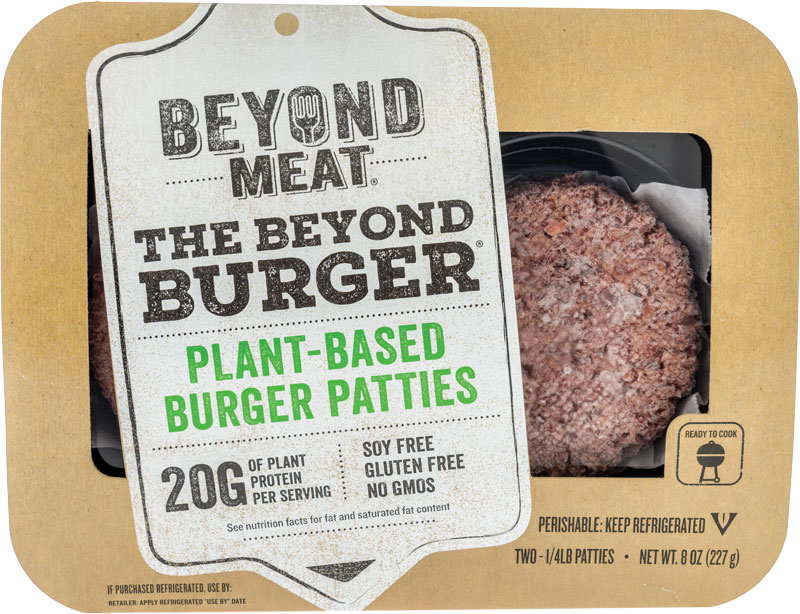Cattlemen Have a Beef with Fake Meat
July 19, 2018
Written By Callie Hanson
Missouri Bans Misrepresentation of Meat
Missouri has become the first state to ban alternative-meat products from being marketed as meat. The state’s lawmakers approved legislation outlawing foods originating from sources other than livestock or poultry from using the term “meat” on product labels.

The surge of interlopers vying to compete with more traditional protein products in the meat case has prompted action from livestock organizations like the Missouri Cattleman’s Association, which decided something had to be done to protect the interests of its members. Cattlemen from the association approached Senator Sandy Crawford, who serves on the Senate Agriculture Committee, for help with writing and sponsoring the bill.
Crawford, a cattlewoman from Buffalo, Mo., says the new law is incredibly important for producers and consumers alike in the state of Missouri.
“With agriculture being the No. 1 industry in the state, it is important to protect the brand we have created for Missouri agriculture and ensure our consumers know exactly what they are buying,” she says.
Animal agriculture contributes $11.6 billion in added value to the state’s economy, and the cattle industry alone contributes more than 35,000 jobs and $547.5 million in labor income.
Cattleman Greg Buckman says clearly labeling what a product is made of is just as important as other labeling regulations such as country of origin.
“Consumers should know where their meat came from and they should know what it came from as well,” says Buckman, who serves as president of the Missouri Cattlemen’s Association.
Representative Jeff Knight, a former livestock auctioneer who sponsored the legislation in the Missouri House, says the ultimate purpose of the bill is to provide unmistakable labeling on products that are marketed as meat but do not originate from a living animal.
“This bill will protect the economic interests of the livestock industry and ensure that alternative protein products are not able to ride the coattails of hardworking Missouri producers,” Knight says.
He recognizes consumers with diet and health restrictions may need alternative protein sources, but he says the new law will not prohibit these items from being sold. It instead will provide a definitive labeling standard.
“Consumers have a right to know the exact origin of what they’re eating.”
Animal-free Foodstuffs
While meat analogues like tofu, which dates back to 164 BC, and veggie burgers have been on the market for years, a fresh wave of mock meats have emerged in recent years. Grocery stores are now home to products such as meatless meatballs, vegan sausages, and chicken-free strips. Companies like San Francisco startup Memphis Meats, which boasts high-profile investors such as Tesla, Bill Gates as well as agriculture heavyweights Cargill and Tyson Foods, are working to commercialize “lab-grown meat” from cultured cell tissue.
Tyson is the largest U.S. meat processor and sold more than $38 billion in beef, pork, chicken and prepared foods last year. Yet that hasn’t stopped the company from backing a variety of emerging food startups focused on sustainability. The company has shifted its mission to strive to be a protein company, not just a meat company.
A Nielsen Homescan survey conducted last year found that 39 percent of Americans are actively trying to eat more plant-based foods. While alternative meat products make up less than 1 percent of fresh meat sales in the United States, research from Nielsen shows their popularity is growing at an annual rate of 24.5 percent.
Labeling Food Fight
Dairy farmers are no stranger to clashes concerning food labels. They’ve been battling with soy- and nut-based beverages marketed at milk drinkers. Food and Drug Administration standards prohibit these products from being labeled as milk, but dairymen claim loose enforcement has led to a need for more stringent rules.
“The dairy industry has lost about 10 percent of its market to nut juices and if we, as livestock producers, don’t act quickly, we will be dealing with a similar predicament in the meat case,” Buckman says.
Considering most dairy cattle eventually enter the beef market and account for 20 percent of the beef supply nationwide, Missouri dairies also have a vested interest in the new law. Dave Drennan, executive director of Missouri Dairy Association, backed the legislation and says “anything that helps the beef industry helps the dairy industry.”
At the federal level, the U.S. Cattlemen’s Association has filed a petition with the U.S. Department of Agriculture’s Food Safety and Inspection Service to exclude products not derived directly from animals raised and slaughtered from being labeled as meat.
The National Cattlemen’s Beef Association is pushing for even stricter laws prohibiting imitation products from using meat terminology in branding. Citing a history of lax FDA enforcement, NCBA has urged USDA to assert regulatory authority over the FDA for foods produced from cell cultures derived from livestock.
The FDA has signaled it is ready to “take new steps” to ensure consumers understand the health attributes of the foods they purchase.
“It’s important that we take a fresh look at existing standards of identity in light of marketing trends and the latest nutritional science,” FDA Commissioner Scott Gottlieb said in March. “We also want to know if consumers are being misled in ways that can adversely affect their dietary decisions when certain products qualify themselves with terms such as milk or rice, but are made from ingredients that don’t reflect the traditional assumptions about how products labeled that way are derived.”

